|
Books Should Be Free Loyal Books Free Public Domain Audiobooks & eBook Downloads |
|
|
Books Should Be Free Loyal Books Free Public Domain Audiobooks & eBook Downloads |
|
Top Authors |
|---|
|
Book type:
Sort by:
|
By: Anonymous | |
|---|---|
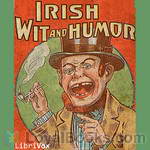 Irish Wit and Humor
Irish Wit and Humor
Excerpted anecdotes from the biographies of Swift, Curran, O'Leary and O'Connell, relating humorous snippets of politics in 18th and 19th century Ireland. For some these may be poignant in addition to being humorous and for others they may be humorous in addition to being poignant. ( | |
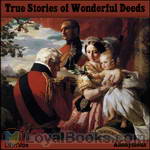 True Stories of Wonderful Deeds
True Stories of Wonderful Deeds
37 short pieces perfect for newer recorders. These one page Stories of (mostly) Wonderful Deeds were written for Little Folk to teach them about famous incidents in their history. Bonnie Prince Charlie, Nelson and Hardy, Bruce and the Spider, David Livingston, Canute, Sir Philip Sydney, and Elizabeth and Raleigh are just some of the well known people and incidents covered in short stories. | |
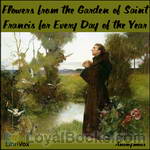 Flowers from the Garden of Saint Francis for Every Day of the Year
Flowers from the Garden of Saint Francis for Every Day of the Year
Here is a collection of 365 short spiritual reflections and moral admonitions of Saint Francis of Assisi (1182-1226) and other notable Franciscans. One might conclude that, while some of these admonitions are applicable to almost anyone, others seem too rigorous, or at least inappropriate for certain vocations or stations in life. This may be explained by recalling that these words of advice and spiritual direction were directed primarily to friars and cloistered nuns. Thus, we detect in these words a great concern for the development of profound personal humility, meekness, celibate chastity, and sorrow for sin... | |
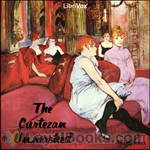 The Curtezan Unmasked
The Curtezan Unmasked
"The Curtezan unmasked or, the Whoredomes of Jezebel Painted to the Life: With Antidotes against them, or Heavenly Julips to cool Men in the Fever of Lust" is a fire-and-brimstone polemic by "A Spiritual Physician" to persuade young men not to succumb to harlotry and its accompanying perils. (Introduction by Denny Sayers) | |
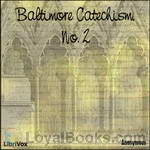 Baltimore Catechism, No. 2 -- Catechism of Christian Doctrine
Baltimore Catechism, No. 2 -- Catechism of Christian Doctrine
A catechism is a summary of the principles of Christian religion and articles of the faith. The Baltimore Catechism specifically was the de facto standard Catholic school text in the United States from 1885 to the late 1960s. It was the first such catechism written for Catholics in North America, replacing a translation of Bellarmine's Small Catechism. The Baltimore Catechism remained in use in nearly all Catholic schools until many moved away from catechism-based education, though it is still used up to this day in some. (Summary by Wikipedia) | |
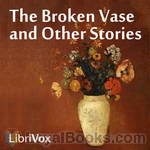 The Broken Vase and Other Stories
The Broken Vase and Other Stories
The Broken Vase and Other Stories;for Children and Youth,Compiled by a Teacher | |
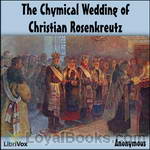 The Chymical Wedding of Christian Rosenkreutz
The Chymical Wedding of Christian Rosenkreutz
The Chymical Wedding of Christian Rosenkreutz was edited in 1616 in Strasbourg (annexed by France in 1681). It is the third of the original manifestos of the mysterious "Fraternity of the Rose Cross" (Rosicrucians). NOTE: It was translated into English for the first time in 1690 by E. Foxcroft. This translation became the source for many of the modern attempts to improve the original. The translation presented here is that of E. Foxcroft. Although the book first appeared in 1616, the story takes place over 150 years earlier... | |
 A Year With the Saints
A Year With the Saints
Go through the year in the footsteps of the saints. This book emphasizes one virtue for each month with quotes and stories from the lives of the saints to help teach and inspire that particular virtue in us.For January, Perfection; February, Humility; March, Mortification; April, Patience; May, Meekness; June, Obedience; July, Simplicity; August, Diligence; September, Prayer; October, Confidence; November, Charity; and December, Union. | |
 Jokes For All Occasions
Jokes For All Occasions
JOKES FOR ALL OCCASIONSPREFACEThe ways of telling a story are as many as the tellers themselves. It is impossible to lay down precise rules by which any one may perfect himself in the art, but it is possible to offer suggestions by which to guide practise in narration toward a gratifying success. Broadly distinguished, there are two methods of telling a story. One uses the extreme of brevity, and makes its chief reliance on the point. The other devotes itself in great part to preliminary elaboration in the narrative, making this as amusing as possible, so that the point itself serves to cap a climax... | |
 Doctrina Christiana
Doctrina Christiana
DOCTRINA CHRISTIANAThe first book printed in the Philippines has been the object of a hunt which has extended from Manila to Berlin, and from Italy to Chile, for four hundred and fifty years. The patient research of scholars, the scraps of evidence found in books and archives, the amazingly accurate hypotheses of bibliographers who have sifted the material so painstakingly gathered together, combine to make its history a bookish detective story par excellence. It is easy when a prisoner has been... | |
 Book Of Jasher
Book Of Jasher
Jasher The Hebrew title may be translated Sefer haYashar - "Book of the Upright" - but it is known in English translation mostly as The Book of Jasher following English tradition. The book is named after the Book of Jasher referenced In Joshua 10:13; 2 Samuel 1:18; And 2 Timothy 3:8.Jasher is an historical text that covers the time period from Creation through Israel's journey into Canaan. - Summary by CJ Plog. | |
 Nell and Her Grandfather
Nell and Her Grandfather
If you have heard of the Dickens novel, The Old Curiosity Shop, and remember Nell Trent, the beautiful and virtuous young girl of "not quite fourteen", an orphan, who lived with her maternal grandfather in his shop of odds and ends, then you will understand that these stories take place in the same time period as the book and have the same lovable and quirky characters. Not written by Dickens, of course, they try and succeed in my mind to carry on our enjoyment of hearing of the escapades of the people and England we love. - Summary by Phil Chenevert | |
 Juvenile Bible
Juvenile Bible
A collection of short poems describing every book of the Bible for young children to read in order to help them learn about the Bible. | |
 Most Extraordinary Trial of William Palmer
Most Extraordinary Trial of William Palmer
John Parsons Cook was a 28 year old bachelor, from a good family but not in robust health. He studied to become a lawyer, but instead of following that career, turned to raising race horses. In November 1855, during a visit to the Shrewsbury races, he was taken violently ill. He was attended by the 80 year old local doctor Dr. Bamford, and Cook's friend and sometimes partner, Dr. Palmer. William Palmer was a physician and surgeon, a widower and father. His appearance instilled confidence and invited trust... | |
 Theologia Germanica
Theologia Germanica
This short, anonymous work is thought to have been written in the 1300s by a member of the lay-religious group called ‘The Friends of God.’ Its central teaching is that humans can become one with God by living a holy, selfless life in which our will is subsumed into God’s, of which Christ is the ultimate example. Martin Luther discovered, named, and published Theologia Germanica in 1516, declaring that, "Next to the Bible and St. Augustine, no book has ever come into my hands from which I have learnt more of God and Christ, and man and all things that are." | |
 Unaddressed Letters
Unaddressed Letters
“I had a friend who loved me;” but he has gone, and the “great gulf” is between us. After his death, I received a packet of manuscript with these few words:—“What I have written may appeal to you because of our friendship, and because, when you come to read them, you will seek to grasp, in these apparent confidences, an inner meaning that to the end will elude you. If you think others, not the many but the few, might find here any answer to their unuttered questionings, any fellowship of sympathy in those experiences which are the milestones of our lives, then use the letters as you will, but without my name... | |
 Life of Lazarillo de Tormes (Markham translation)
Life of Lazarillo de Tormes (Markham translation)
A whimsical collection of stories about a wandering street urchin, Lazarillo de Tormes is a classic of the Spanish Golden Age, even paid homage in Cervantes’ Don Quixote. Rendered homeless by the arrest of his father and poverty of his mother, the boy Lazarillo has no choice but to go out and find masters to serve. Unfortunately, each of his masters is worse than the one before, and in each case Lazarillo is cast upon his own wits in order to survive. Clever, hungry, and desperate, he always has a sharp eye for lessons on how to outwit the greedy and unscrupulous people who surround him... | |
 Taste of New Mexico Kitchens
Taste of New Mexico Kitchens
From the New Mexico Magazine comes a selection of recipes unique to this region, selected from two cookbooks previously published. Sample, "Stacked enchiladas topped with an egg and smothered in pungent red sauce, tender sopaipillas, rich and meaty posole stew, green chile, and blue corn tortillas" among others. - Summary by Larry Wilson | |
 Shri Dnyaneshwar - A Sketch Of His Life And Teachings
Shri Dnyaneshwar - A Sketch Of His Life And Teachings
An overview of the life of Shri Dnyaneshwar and his devoted family. Dnyaneshwar was a 13th-century Indian poet and yogin. He commentated the Bhagavad Gita in a timeless manner while in his teens, and wrote an original book of verse. He was an inspirational speaker with many followers. - Summary by Czandra | |
 Incidents of Childhood
Incidents of Childhood
Short stories for children that hide practical lessons within charming glimpses of life in England in the Early 19th Century. | |
 Constitutions of the Holy Apostles (Books 1 to 3)
Constitutions of the Holy Apostles (Books 1 to 3)
The Apostolic Constitutions are made up of eight treatises on Early Christian discipline, worship, and doctrine, which was intended to act as a manual of guidance for the clergy, and laity. It claims to be composed by the Twelve Apostles who received these instructions from Jesus Christ, although most scholars believe it to be a 4th-century work.The structure of the work is as follows: Books 1 to 6 are a re-writing of the Didascalia Apostolorum. Book 7 is based largely on the Didache, with Chapters 33-45 containing prayers similar to existing Jewish ones. Book 8 has a treatise on charismata, along with, what are known as, the Canons of the Apostles. | |
 St. Clair's Defeat 1791
St. Clair's Defeat 1791
St. Clair's defeat was a battle fought between the United States and the Western Confederacy of Native Americans on November 4, 1791, during the Northwest Indian War. Out of a US force of roughly 1000 men and officers, only 24 escaped unharmed. It has been cited as the most decisive defeat in the history of the American military and its largest defeat ever by Native Americans. This pamphlet is a compilation of three articles published in 1847, 1851 and 1864. | |
 Cottage Cheese Recipe Book
Cottage Cheese Recipe Book
This short recipe book from the Borden Company has a full range of recipes including Appetizers, Salads, Salad Dressings, Breads, Main Dishes, and Desserts. - Summary by Larry Wilson | |
 INTRODUCTION to The Garden Of Bright Waters
INTRODUCTION to The Garden Of Bright Waters
volunteers bring you 18 recordings of INTRODUCTION to The Garden Of Bright Waters, by Anonymous, translated by Edward Powys Mathers. This was the Weekly Poetry project for July 18, 2021. ------ Edward Powys Mathers was an English translator and poet, and also a pioneer of compiling advanced cryptic crosswords. Some of his translations were set to music by Aaron Copland. | |
 New York Cake Book
New York Cake Book
Starting with general instructions on making cakes we have "fifty recipes from a famous New York Chef." from Almond Cake to Strawberry Shortcake and recipes for cake icing. - Summary by Larry Wilson | |
 Money-Saving Main Dishes
Money-Saving Main Dishes
This is Home and Garden Bulletin No. 43 from the Human Nutrition Research Division and Consumer and Food Economics Research Division Agricultural Research Service of the US. Department of Agriculture. Along with shopping and cooking tips, there are recipes covering meat, poultry, fish, eggs, milk, beans, bread & cereal, and lunch box main dishes. - Summary by Larry Wilson | |
 True Stories of Wonderful Deeds (Version 2)
True Stories of Wonderful Deeds (Version 2)
This book contains 37 short stories for little folk featuring a variety of historical figures and their wonderful deeds. These stories span over a wide time frame. There is one featuring brave Queen Boadicea and another about the Battle of Waterloo. There is a variety of topics covered, including many bravely fought battles, an inventor, and a traveler’s adventure with a tiger! - Summary by SweetHome | |
 Life Unveiled, by a Child of the Drumlins
Life Unveiled, by a Child of the Drumlins
A memoir of a young woman, who lived in the late 19th century in the United States. Starting with her pastoral youth and progressing through to her studies to become a doctor at Boston University, this is a frank and refreshing portrait of a young American girl’s upbringing; the impressions made upon her at a young age, the navigation through adolescence, and the determination of an emerging adult woman. Told with a sense of humor, wonder and delight. - Summary by Phyllis Vincelli | |
 Manners and Rules of Good Society; Or, Solecisms to be Avoided by a Member of the Aristocracy
Manners and Rules of Good Society; Or, Solecisms to be Avoided by a Member of the Aristocracy
The title of this work sufficiently indicates the nature of its contents. The Usages of Good Society relate not only to good manners and to good breeding, but also to the proper etiquette to be observed on every occasion. Note: The abbreviation viz. is short for the Latin videlicet, which itself is a contraction of the Latin phrase videre licet, meaning "it is permitted to see". | |
 Please Buy My Verses
Please Buy My Verses
volunteers bring you 10 recordings of Please Buy My Verses by Anonymous. This was the Weekly Poetry project for November 18, 2018. ------ PLEASE BUY MY VERSES. PRICE: WHAT YOU PLEASE The Bearer Lost His Eyesight While Blasting in December, 1868. - Summary by text | |
 Merry Christmas : two early birds
Merry Christmas : two early birds
volunteers bring you 11 recordings of A Merry Christmas : two early birds by anonymous. This was the Weekly Poetry project for December 11. 2018. ------ This Christmas pamphlet, dated 1890, from The Mail and Empire, a Toronto newspaper, solicits Christmas donations for the newspaper delivery boys. - Summary by David Lawrence | |
 Santa Claus, Kriss Kringle or St. NIcholas
Santa Claus, Kriss Kringle or St. NIcholas
volunteers bring you 14 recordings of Santa Claus, Kriss Kringle or St. NIcholas by Anomymous. This was the Fortnightly Poetry project for December 16, 2018. ------ This poem was published in booklet form with illustrations in 1897. - Summary by David Lawrence | |